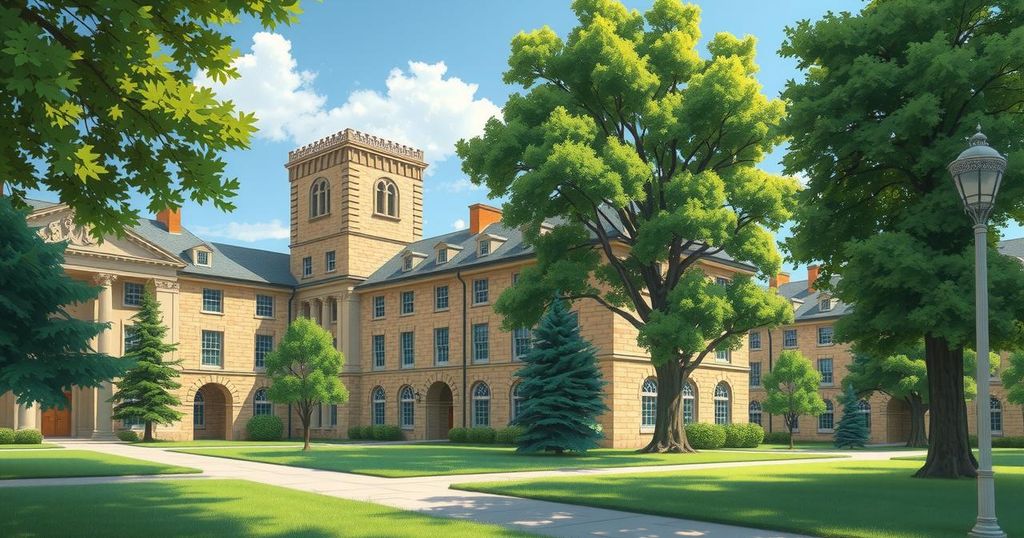Justice Department Investigates Columbia University Over Undocumented Students

The U.S. Justice Department is investigating Columbia University for allegedly concealing undocumented students amid increased corruption against foreigners linked to pro-Palestinian protests. The investigation follows search warrants executed by the Department of Homeland Security. The administration continues to impose punitive measures on the university, including significant funding cuts, in retaliation for its handling of dissenting student voices regarding Israel.
The U.S. Justice Department is investigating allegations that Columbia University concealed undocumented students on its campus amid a heightened effort to deport individuals linked to pro-Palestinian demonstrations last year. This investigation includes the execution of search warrants by the Department of Homeland Security at campus residences, although no arrests were made during these searches. As of Friday afternoon, developments were confirmed regarding two individuals connected to the demonstrations, including a Columbia student from India who fled the country and a Palestinian woman arrested for overstaying her visa.
During a press briefing, Deputy Attorney General Todd Blanche indicated that this investigation is part of a broader commitment by the administration to combat antisemitism. He stated, “Just last night, we worked with the Department of Homeland Security to execute search warrants from an investigation into Columbia University for harboring and concealing illegal aliens on its campus.” Blanche also suggested the inquiry would examine whether Columbia’s actions breached civil rights laws and involved potential terrorism crimes.
Interim University President Katrina Armstrong expressed her distress over the federal agents’ presence during the searches, emphasizing the institution’s commitment to the rule of law and its dedication to fostering an environment of knowledge. Columbia is facing significant pressure from the Trump administration, having recently lost $400 million in federal funding due to perceived insufficient action against students and staff critical of Israel.
The administration has demanded various conditions from Columbia, including changes to its admissions process and oversight of certain academic departments. Furthermore, they have requested a ban on masks on campus and alterations to international student recruitment practices, all while threatening further cuts to federal support. Despite these pressures, many within the university insist that advocating for Palestinian rights does not equate to antisemitism, although some Jewish members feel unsafe due to the rising tensions.
Columbia’s situation escalated following the arrest of Mahmoud Khalil, a prominent Palestinian activist. Additionally, Ranjani Srinivasan, another student, was subjected to visa revocation for alleged advocacy of violence. The legal status of Leqaa Kordia, arrested for an expired visa, is currently disputed by Columbia, which maintains no records of her being a student at their institution.
U.S. Secretary of State Marco Rubio noted that the administration anticipates additional student visa revocations shortly, indicating an ongoing crackdown on perceived misconduct related to campus protest activities. This situation reveals the evolving dynamics between educational institutions, government policy, and the rights of students engaged in political discourse.
The ongoing investigation by the U.S. Justice Department into Columbia University highlights significant tensions surrounding free speech, immigration enforcement, and university governance. As the administration intensifies its campaign against perceived antisemitism, Columbia faces considerable pressure to amend its policies concerning student protests. The fate of those involved in the demonstrations, including visa revocations and arrests, underscores the broader implications for students advocating for political rights within academic settings.
Original Source: apnews.com








